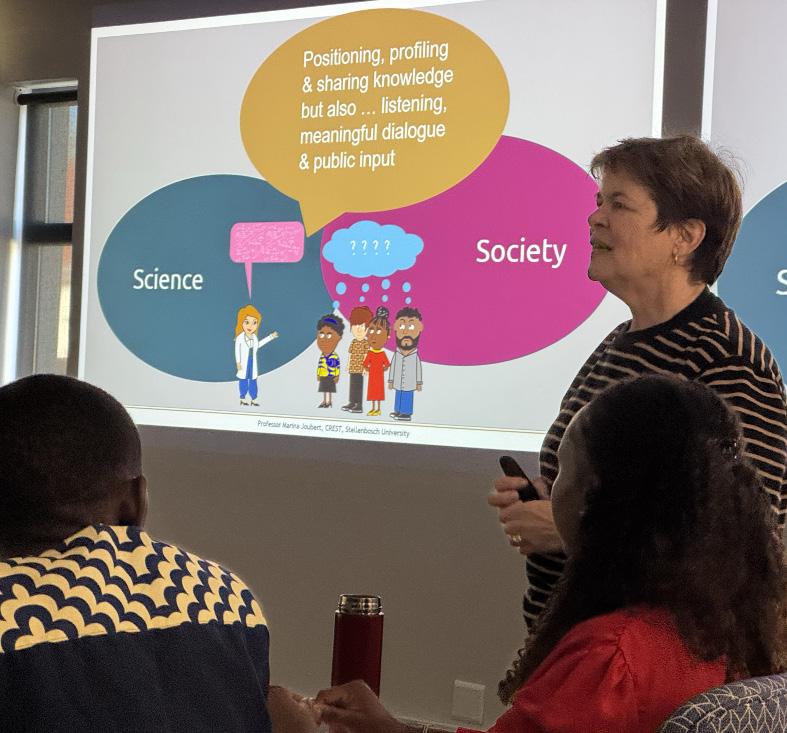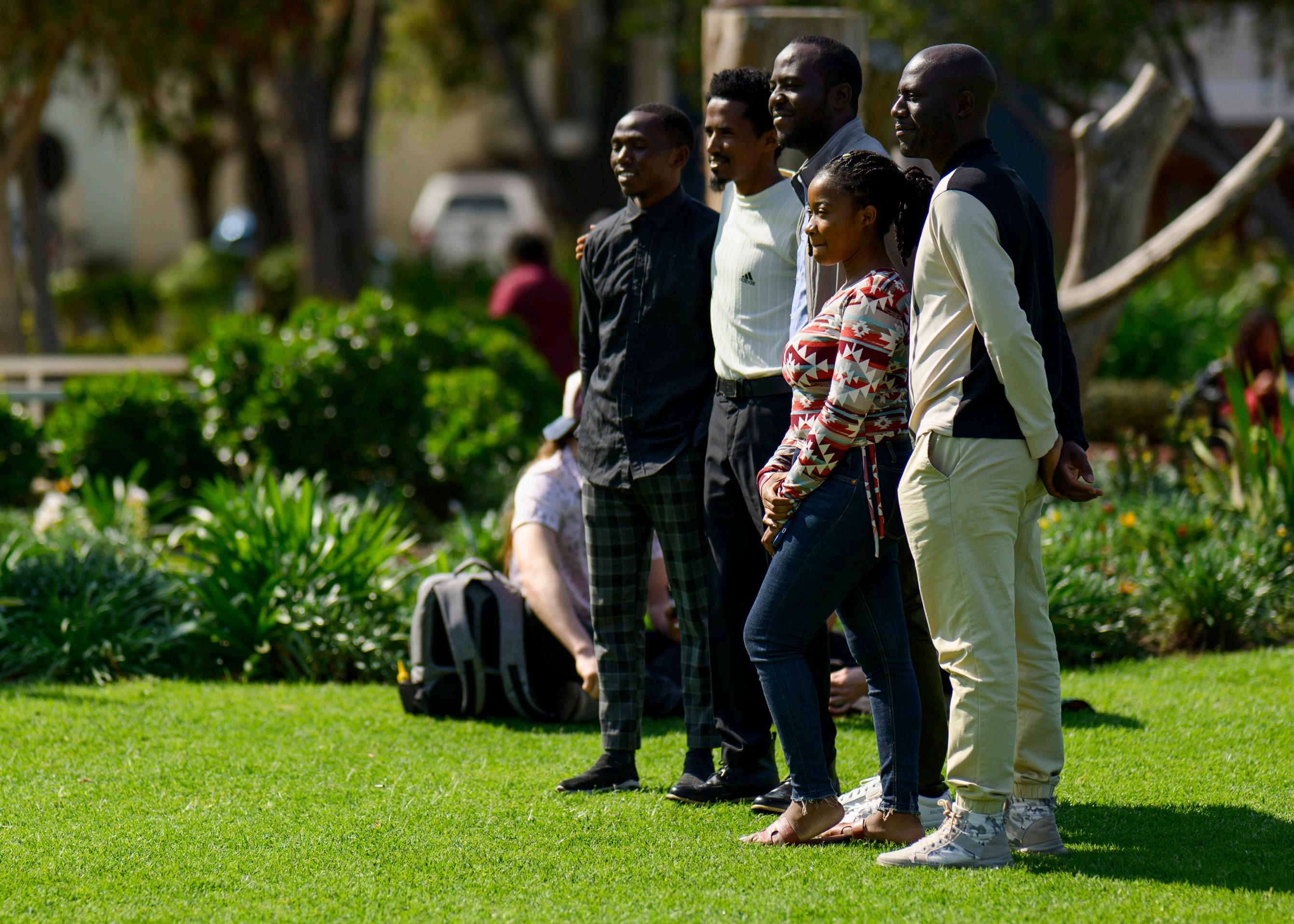
3 minute read
Science Speaks Volumes
African STARS Fellows Master the Art of Communication
text: Katrine Anker-Nilssen photo: Maambele Khosa
Science that is not communicated effectively can be misinterpreted, overlooked, or even distrusted – particularly in contexts where misinformation thrives. In a world increasingly shaped by science and technology, scientists and leaders have a responsibility to communicate their work clearly, ethically, and inclusively.
The first week of September, Media & Communication Week, equipped African STARS fellows with practical tools to engage with the public, policymakers, media professionals, and other non-scientific communities. “In Africa, we are producing world-class science, but we still have work to do when it comes to investing in how that science is communicated. Breakthroughs only matter if people can understand and act on them,” explained coordinator, Maambele Khosa.
“I’m grateful to have curated and collaborated with experts to equip the African STARS fellows with realworld communication skills, stepping into studios, learning media engagement, practicing photography, and refining their ability to tell stories that matter.”
Alongside this practical training, fellows explored the essence of science communication, why it matters, how to write for the public, and the importance of platforms like The Conversation Africa.
Facilitator Katherine Rabik, with colleagues Marina Joubert and Lili Rademan, opened the week with a science communication workshop. “After setting the scene with a discussion about the history, theory and ethics of science communication, we guided the fellows through the process of creating an impactful science communication presentation by considering the audience, jargon, structure and public speaking skills,” explained Katherine. “At the end of the day we were truly blown away by the amazing presentations the fellows created, and can’t wait to see what else they accomplish over the course of the fellowship.”
For fellow Francisca Serwaa Adomako, the experience was life-changing. “I often struggle to engage, and to get my message across. As a scientist, I have shied away from media and communication. Convincing myself that the lab is my turf, that I don’t belong in front of cameras or behind desks writing pieces to the media,” she said. “However, this week has transformed that thinking. I have learnt that communication is the true currency of science, and that there is no one better qualified to carry the message of our work than we, the scientists.”
Francisca thanked the facilitators – Maambele Khosa, Prof Tulio de Oliveira, Prof Marina Joubert, Dr Lili Rademan, Katherine Rabik, Martin Viljoen, Stefan Els, and Prof Sibusiso Moyo – for opening her eyes to the power of clear communication. “We learned how to distil our science, strip away technicalities and jargon we so often take for granted, and present it so that every stakeholder can clearly grasp its relevance and impact.” She also acknowledged The Conversation Africa team, Caroline Southey and Kagure Gacheche, for guidance on pitching and shaping articles.
The week concluded with a photoshoot and sessions on marketing and personal branding, led by Prof Chris Pentz and Dr Debbie Human-Van Eck. “Five days of practical, engaging learning and rich insights have been nothing short of transformative,” said Francisca. “There is no ‘better’ person out there to communicate your science. Go for it!”
Maambele summed it up: “Problem-solving isn’t just about discoveries, it’s about how those discoveries are shared with the world. If we expect scientists to engage with the public, policymakers, and the media, we must equip them with the tools, training, and confidence to do so effectively.”











